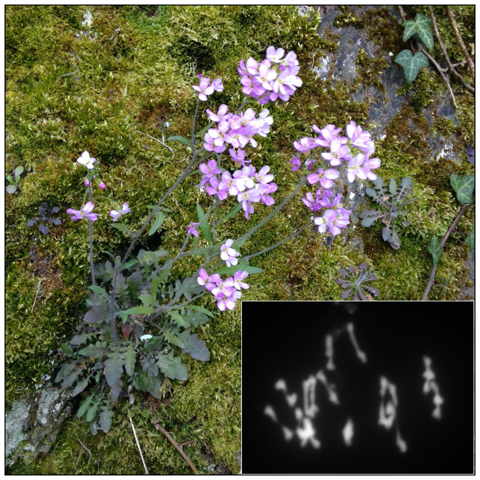Recombination and chromosome pairing vary with seasonal temperature in nature
A recent "Molecular Ecology" paper by the Bomblies group (IMPB) shows that meiotic recombination rate, as well as abnormal chromosome associations that can lead to aneuploidy, co-vary with temperature across a growing season in wild populations of a tetraploid plant, Arabidopsis arenosa.

In nature, organisms must deal with considerable variation in temperature. Now, with rising global temperatures and increased frequency of extreme weather events such as heat waves or aberrant cold, it is critical to understand how essential cellular process can or cannot cope.
Meiosis is the cell division by which sexually reproducing plants, animals, fungi and protists produce gametes. In addition to faithfully passing on parental genome copies to offspring, meiosis is also critical for shuffling genetic information into new combinations in offspring (recombination). Meiosis is known from laboratory studies to be sensitive to temperature, but is this relevant in the more variable conditions in nature?
In a recent study, researchers in the Bomblies group in IMPB showed that across a growing season plants growing in the wild do show measurable alterations in recombination rate, and in some cases, abnormalities that could affect fertility or chromosome segregation. Specifically, recombination rate shows a “U-shaped” correlation with temperature, and aberrant chromosome associations increase at lower temperatures.
These results show that plants regularly experience temperature events that can lead to alterations in meiotic recombination and stability. These effects are expected to worsen, and fertility lessen, as extreme temperature events increase in frequency with climate change. This work paves the way toward a mechanistic understanding of the cellular causes.
Link to the paper in external page "Molecular Ecology"